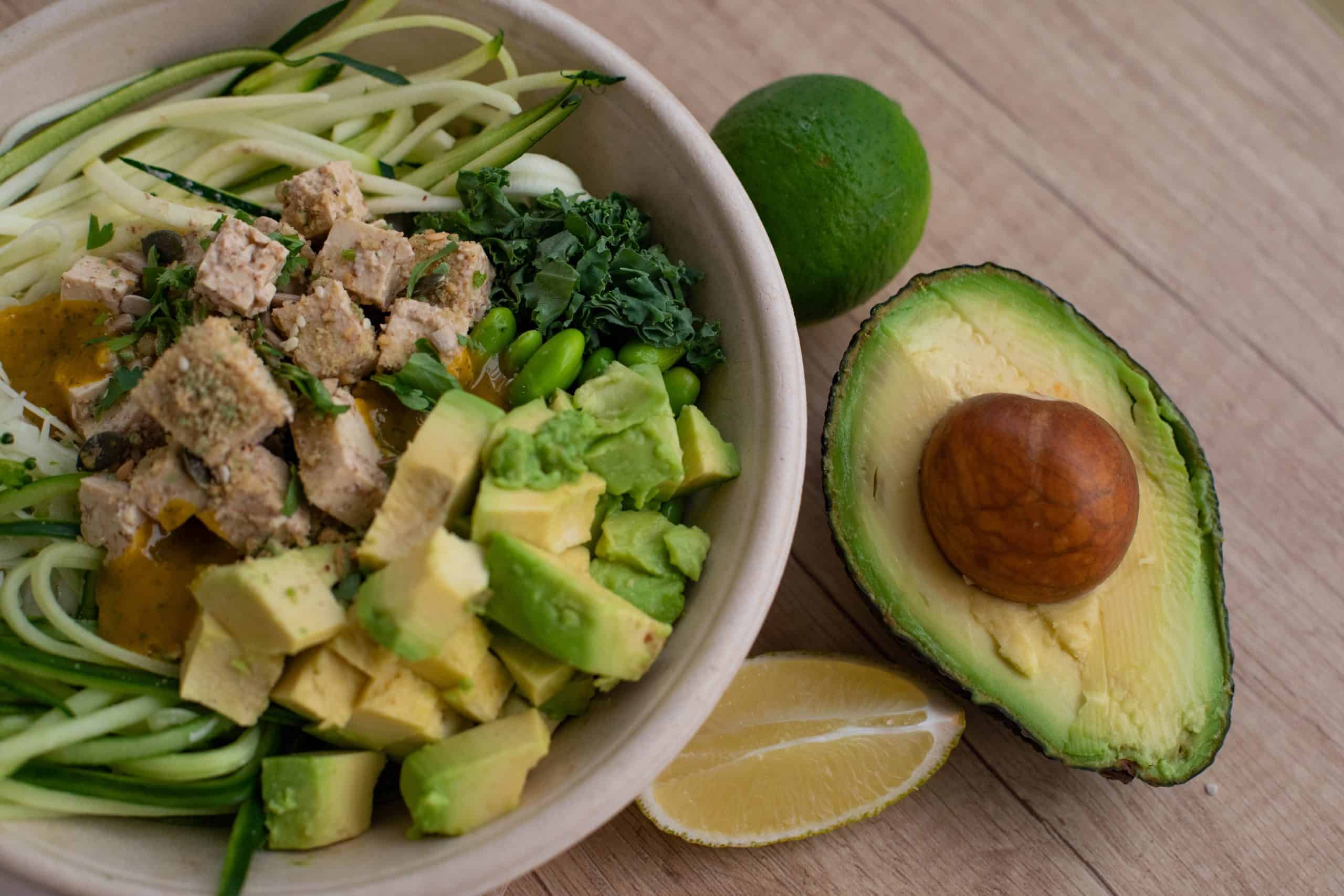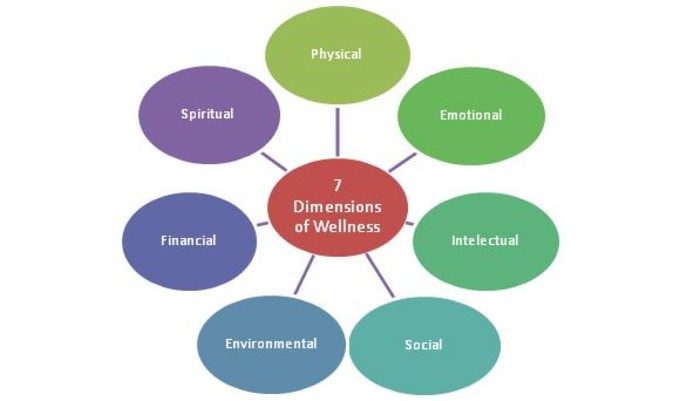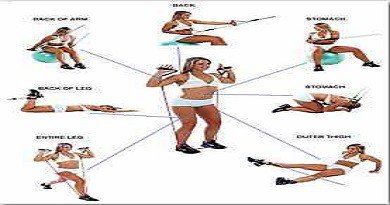How To Practice The Keto Lifestyle If You Are A Vegetarian

What Does A Vegetarian Keto Diet Consists Of?
A vegetarian keto diet joins aspects of keto and a vegetarianism lifestyle. Majority of the vegetarians consume animal products, such as dairy and eggs but stay away from fish and meat.
On the other hand, in a ketogenic diet, foods that are high in fat are consumed while the intake of carbs is lowered to about 20grams to 50grams in one day. Due to taking in less amount of carbs, the body goes into ketosis, which is the metabolic state where the body starts to burn fat and not glucose for fuel. In a standard ketogenic diet, about 70% of a person’s total calories need to come from consuming high-fat foods, such as meat, oils, full-fat dairy, and fish.
Can vegetarians eat Keto?. Yes, when a vegetarian wants to try out the keto diet, they won’t be able to consume fish and meat; hence they have to get their source of fat from other foods, like eggs, nuts, seeds, avocados, and coconut oil. The vegetarian version of the keto diet is a low-carb and high-fat diet that does not involve eating meat or fish.
Benefits Of Being On A Vegetarian Or Keto Diet
Even though there are no studies that proved the benefits of a vegetarian keto diet, there are researches that have shown the benefits of each individual lifestyle, whether its vegetarianism or keto.
- You Lose Weight
Individually, both keto and vegetarian diets promote weight loss. A review consisting of twelve studies reported that people who followed a vegetarian diet ended up losing more than about 4.5 pounds, which is around 2kg, as compared to the non-vegetarian individuals, in a span of eighteen weeks. Moreover, a study was conducted for six months, where 74 individuals that had Type-2 Diabetes, ended up losing not only more weight but also fat as compared to the standard low-calorie diets.
Likewise, in a study that was conducted for six months consisted of eighty-three obese individuals that were placed in a keto lifestyle. The result of that was great reduction in not only their weight but also the BMI (body mass index). On average, they lost about 31 pounds, which is around 14 kg. Due to the high quantity of healthy fat that is being consumed in a keto diet, an individual stays fuller for long periods of time, hence reducing their hunger.
- You Are Protected Against Any Chronic Diseases
Reduction in the risk of several chronic illnesses has been associated with vegetarian diets. According to some studies, your risk of cancer decreases and your blood pressure, cholesterol, and BMI improves, which are the risk factors of a lot of heart conditions. Studies have been done on the keto diet in order to see the effects of this diet on preventing diseases.
A study of sixty-six individuals on keto diet was conducted for fifty-six weeks and great reduction was seen in their weight, blood sugar, LDL cholesterol that is the bad cholesterol, triglycerides, and total cholesterol. All of these factors are associated with heart disease. Furthermore, some other studies have suggested that the keto diet significantly improves brain health. Plus, it can potentially help treat Alzheimer’s and Parkinson’s diseases. Test tube and animal studies have also noted that this diet might also be able to reduce cancerous tumors’ growth, but this requires more research to be proven for sure.
- Your Blood Sugar Is Under Control
Both keto and vegetarian diets support control of the blood sugar. Six studies were reviewed and according to them vegetarian diets were linked with a significant amount of reduction in HbA1c levels, which is the marker for long-term control of the blood sugar. Moreover, a study that lasted for five years consisted of 2,918 individuals who were on a vegetarian diet. According to that study, their risk for diabetes was reduced by 53%.
Likewise, a keto diet can improve the blood sugar regulation of one’s body and increase the body’s sensitivity to insulin, which is a hormone responsible for controlling the sugar level in one’s blood. A study consisting of twenty-one individuals was conducted for four months, and they were made to follow the keto diet. The result was that their HbA1c levels were reduced by 16%. Furthermore, about 81% of these people either lowered the intake of their medicine for diabetes or stopped using it completely once the study was done.
Individually, both of these diets promote weight loss, keeps a person safe from a lot of chronic diseases, and supports the control of blood sugar. However, it must be noted that there isn’t any study that looked specifically into a vegetarian keto diet.
Potential Drawbacks Of The Vegetarian Keto Diet
When it comes to the combination of a vegetarian diet with the keto lifestyle, there might be a couple of downsides.
- You Might Be At A Higher Risk For Certain Nutritional Deficiencies
When it comes to vegetarian diets, a person needs to properly plan their daily diet so that they can meet all of their nutritional needs. According to studies, the vegetarian lifestyle lowers the levels of certain nutrients in one’s body, such as calcium, iron, protein, and vitamin B12, to name a few. Now combine that diet with the keto lifestyle, your diet becomes more restrictive due to the limitation on various nutrient-dense foods, like legumes, whole grains, and fruits. Hence, this increases your risk for further nutritional deficiencies.
Therefore, carefully checking the intake of your nutrients and consuming a wide range of whole and healthy foods will definitely help in ensuring that your body is getting all of the vitamins plus minerals that it needs. Supplements can help as well, especially when it comes to nutrients that are often absent from a vegetarian diet, like vitamin B12.
- You Might Experience Flu-like Symptoms
When your body goes into ketosis, it can experience several side effects, which is sometimes called the Keto Flu. The symptoms of this flu are as follows: headaches, constipation, fatigue, cramping in the muscles, sleeping issues, mood swings, nausea, and dizziness.
Usually, these side effects are gone in a couple of days. Exercising, keeping yourself hydrated, and resting a lot can help in easing these symptoms.
- Certain Individuals Should Not Adopt This Lifestyle
Due to the many restrictions that are in a vegetarian keto diet, this is not an ideal lifestyle choice for everyone. For instance, children must not be placed in this lifestyle. Plus, breastfeeding or pregnant women should also avoid it since they won’t be able to consume the nutrients that are important for proper development and growth.
Furthermore, this diet might not be right for athletes, people that have Type-1 Diabetes, or people with an eating disorder history. It is best to consult your local healthcare practitioner if you take any medications or have a health condition prior to starting this diet. The vegetarian keto diet can have side-effects that last for a short amount of time,be harmful for breastfeeding or pregnant women, plus children. Also, you don’t get a vast majority of your important nutrients.
Foods You Can Eat In A Vegetarian Keto Diet
A healthy and nutritious vegetarian keto diet consists of foods, such as healthy fats, sources of protein, and non-starchy vegetables. Here is a detailed list of those foods.
- Non-starchy Vegetables
- Broccoli.
- Kale.
- Mushrooms.
- Cauliflower.
- Spinach.
- Bell peppers.
- Zucchini.
- Healthy Fats
- Coconut oil.
- Avocados and avocado oil.
- Olive oil.
- MCT oil.
- Nuts
- Walnuts.
- Almonds.
- Macadamia nuts.
- Cashews.
- Brazil nuts.
- Pistachios.
- Seeds
- Flax seeds.
- Pumpkin seeds.
- Hemp seeds.
- Chia seeds.
- Nut Butters
- Peanut butter.
- Almond butter.
- Hazelnut butter.
- Pecan butter.
- Full-Fat Dairy Products
- Yogurt.
- Cheese.
- Milk.
- Protein
- Eggs.
- Tempeh.
- Tofu.
- Spirulina.
- Nutritional yeast.
- Natto.
- Low-carb Fruits Consumed In Moderation
- Lemons.
- Limes.
- Berries.
- Seasonings And Herbs
- Paprika.
- Basil.
- Salt.
- Pepper.
- Oregano.
- Turmeric.
- Thyme.
- Rosemary.
Foods You Need To Eliminate Or Limit On A Vegetarian Keto Diet
In a vegetarian keto diet, every meat plus seafood should be avoided. Foods high in carbs, such as legumes, starchy vegetables, fruits, and grains are allowed in smaller quantity and should fit into the daily carb requirement.
These foods should be eliminated from the diet:
- Meat
- Beef.
- Lamb.
- Pork.
- Veal.
- Goat.
- Poultry
- Chicken.
- Duck.
- Turkey.
- Goose.
- Fish And Shellfish
- Tuna.
- Salmon.
- Anchovies.
- Sardines.
- Lobster.
These foods should be consumed in a limit:
- Starchy Vegetables
- Potatoes.
- Beets.
- Yams.
- Carrots.
- Sweet potatoes.
- Parsnips.
- Sugar-Sweetened Beverages
- Soda.
- Sports drinks.
- Sweet tea.
- Energy drinks.
- Juices.
- Grains
- Bread.
- Oats.
- Rice.
- Millet.
- Quinoa.
- Barley.
- Pasta.
- Buckwheat.
- Rye.
- Legumes
- Lentils.
- Beans.
- Chickpeas.
- Peas.
- Fruits
- Bananas.
- Apples.
- Berries.
- Oranges.
- Melons.
- Plums.
- Peaches.
- Apricots.
- Condiments
- Ketchup.
- Honey mustard.
- Barbeque sauce.
- Sweet salad dressings.
- Marinades.
- Processed Foods
- Cookies.
- Chips.
- Crackers.
- Breakfast cereals.
- Baked goods.
- Granola.
- Sweeteners
- Honey.
- White sugar.
- Brown sugar.
- Agave nectar.
- Maple syrup.
- Alcoholic Beverages
- Wine.
- Beer.
- Sweetened cocktails.
Sample meal plan
I would like to share a sample of one day meal plan to help you kickstart a vegetarian keto diet.
Monday
- Breakfast: Strawberry- Coconut Smoothie
- Lunch: Zuchini pasta Alfredo
- Dinner: Vegetarian Stew
If you would like to receipies for a keto vetatarina diet check the following recommended resources:
[content-egg-block template=offers_list]






